Executive Summary
Exxon is an integrated corporation that deals in a variety of products particularly oil and natural gas products. Its scale of operation is multinational and it is currently in almost every corner of the world. The regional operating firms are quite different with some dealing in research and engineering, while others handle chemical and others deal in petroleum. Every operating firm that handles petroleum products is charged with the responsibilities of upstream and downstream roles. The research and engineering of the firm offer the necessary support that the operating companies need.
Exxon production investigation offers support for the upstream. This includes functions like exploration and production, whereas the research offers support services and information for the chemicals firms (Skjærseth & Skodvin 44). Exxon Company International is the stewarding element of the many affiliate companies that are distributed all over the world including Norway, the United States, Australia, Chile, and China among others.
As a company the deals in petroleum products on an international level, Exxon has had its fair share of troubles in the course of its dealings (Fridtjof Nansen Institute 45). These problems have been concerning social responsibility or corporate duty. Considering that there are many proponents of green technology. Dealing in petroleum had come to be a problem. And solutions had to be created. The firm is hence faced with problems of conserving the environment (climate) and company management; managing some Incidences is very crucial since the oil industry can have very grave accidents and human rights issues (Skjærseth & Skodvin 44).
The issues that are highlighted in the problem that is identified by Exxon are into two levels – the ‘micro’ and the ‘macro’. Essentially, that can be put grossly as – problematic micro problems affects communities directly in different contexts like water pollution while the macro is indirect problems to the society at large (Skjærseth & Skodvin 44). This can hence include a link like oil production and poverty, human rights concerns, and sovereignty interference (politics) in issues of the developing nations.
This report gets a brief story of the dealings that Exxon has been involved in in the global context where it has touched developed and developing nations. Considering the scope of operation, management, and solution of the problem can be a great problem for Exxon is not properly coordinated starting from the top management (Fridtjof Nansen Institute 45).
Essentially, the reason for having to study Exxon is that there have been a lot of allegations against the company concerning the way it operates and handles certain issues that are deemed very critical for the firm for it to be deemed as a good citizen of the world. This kind of operation is very large and when issues like conservation of the environment, human rights, and so on arise, they must be assessed since when they fall out of hand, then reviving the firms or correcting the problems there afterward will be a very big problem (Skjærseth & Skodvin 44).
Position
Exxon is a very important employer and producer of the world’s most-used energy products – petroleum and natural gas. The firm interacts with a lot of people at different levels either directly or indirectly. Exxon Mobil has also been working very hard to integrate its dealings and these developments were effected to the maximum during the beginning of the new millennium. These unwavering goals offer the bias for commitment to the people and organization Exxon interacts with.
Exxon Mobil had to apply a disciplined strategy to the way it was previously managing its assets and investments especially in the region of Latin America especially in Chile to be specific. Exxon has improved its operations in technology-based products like trucks in addition to other movable equipment making it to be better positioned on the global scene.
The problems of human rights come to play in two ways. First, it is about the salaries that the workers are paid. The worldwide human rights watch has accused most oil-based firma especially Exxon of not being transparent or fair in the salaries they give to their employees (Skjærseth & Skodvin 44). The most affected nations are those from Africa, especially in Angola. However, Exxon Mobil has argued that finding employee directly means that the firm always tries to create a close relationship with workers so that they feel appreciated. Exxon claims that its workforce is the competitive edge of the company and by this way, the company offers extremely competitive reimbursement (Taylor 273).
Another problem is dealing with environmental conservation whereby emissions are becoming a major problem in the degradation of the environment and climatic changes. It’s clear that over the past years, there has been increased exploitation of natural energy resources especially crude oil, and therefore increasing the carbon gas emission into the atmosphere and destruction of the environment. Most of the developed countries and emerging economies are the major consumers of oil and the rate of gas emission is very high in such countries making them experience slightly higher global warming temperatures compared to the global average (Skjærseth & Skodvin 44).
The United States and Chinese per capita carbon dioxide emissions are the topmost in the world. The effects of carbon fuel are destructive and as a result, there has been a fruitless effort to invest in alternative energy, green energy which is more ethical and environmentally friendly.
Exxon has had problems in the past concerning some accidental incidences. An accident that involved one of the company’s tankers in 1989 was very grave since it covered a very big area estimated to be over 470 miles (Spies et al 4). The amount of oil spilled was about 40.9 million liters. It is the worst human blunder to the environment in history. A lot of animals died and the aquatic habitat was seriously affected. This prompted the company to structure an incident management plan that will be highlighted later in the paper.
Overall, considering the size of Exxon as a multi-national corporation, management has often been an issue of concern. There are many corporate issues that the firm has been accused of including participating in illegal fights like the incident in Indonesia where that firm was accused of supporting the rebels – GAM, the armed rebellion (Assadourian 76). This was gestured when the firm closed down its field in Aceh just the same day that Indonesia was launching its tactics in operations to fight GAM. The intensity of the matter leads to a lawsuit against Exxon by the international labor rights group (Taylor 273).
Sense
With increased degradation of the Ozone layer and the changing climatic conditions due to the usage of oil and oil products, many oil-producing companies are faced with the problem of being responsible for the degradation. Consider the diagrammatic representation of the situation in the figure below.
Figure 1.0 Characteristic Model for Executing the Company’s Strategic Missions.
Exxon Mobil has not escaped this blame and the company has on several occasions issued statements to declare its stance on the issue (Assadourian 76). The entire world is addicted to petroleum. The great industrial revolution was a result of the discovery of oil usage. Many machines have since then been invented including the automobile industry which is the leading consumer of oils and hence emission of green gas to the atmosphere. According to Exxon, its stance has been misunderstood (Skjærseth & Skodvin 46). Basically, the company decision does not deny that there is no global warming is taking place rather what should be done about it. Many people are now happy that Exxon stopped financing the Washington Think tank that is crucial to the changing environmental conditions.
There have been several cases of accidents that have lead to spills in water and on land. These spills cause very bad consequences on the environment considering that the natural habitat is destroyed and many living organisms end up dying to the oil (Spies et al 5).
There have been some increased concerns about the way the company handles such incidences (Skjærseth & Skodvin 46). The reason for concern is that there have been consistent cases happening in the recent past. The methodology, therefore, has to be re-evaluated so that it is efficient for dealing with the problem. This means that the integrity of Exxon has to be improved by using experts for incident investigation.
The issues of human rights are very crucial to the whole world and impact heavily on the reputation of the company (Assadourian 76). There are some specific examples that Exxon has been accused of violating human rights (Taylor 273). The project has been faced with a lot of opposition with claims that it would pose a great danger to the environment had the residents of the areas that it would go through.
The GAM cases in Australia are other examples of human rights violations. Exxon was accused of shutting the mines in support of the armed insurgents the days the Indonesian government launched retaliation to the rebels (Taylor 273). There are other cases when Exxon has been accused of violating human rights by hiring the military to protect their mines that in turn mistreated and mishandled the locals. Doe vs. Exxon case, for instance, was a claim by Doe John that was allegedly got abused by the military. According to the plaintiff, Exxon hired the troops knowing that the militia would manhandle people (Assadourian 76). Since 2001, Exxon was aware of the massive human rights violation in the country.
The management of Exxon has hence been questioned since it seems unperturbed by the issues that are going on around the company and its affiliates. The company is going private as it is selling its shares. Basically, the production of gas is going down due to many external forces. The reason that Exxon issues are that the resource-rich nations need greater shares in oil and gas while the cost increased (Assadourian 76). The company still reported very low production in 2008 and 2009.
This was even though the firm had announced that new projects were underway to increase the production of natural gas. The reserves that are confirmed are also on the verge of going down. It has been said that low production is only a fraction of the problem. Basically, since Exxon has a very rich resource with very skilled engineers and finances, it should be able to increase its reserves very fast if there is any (O’Riordan 234).
Uncover
On average, there has been increased exploitation of the natural energy resources over the past few years especially crude oil and therefore increasing the carbon gas emission into the atmosphere and destruction of the environment. Most of the developed countries and emerging economies are the major consumers of oil and the rate of gas emission is very high in such countries making them experience slightly higher global warming temperatures compared to the global average. The United States and Chinese per capita carbon dioxide emissions are the topmost in the world. The effects of carbon fuel are destructive and as a result, there has been a fruitless effort to invest in alternative energy, green energy which is more ethical and environmental friendly (O’Riordan 236).
Since all the nations understand the effects of fossil fuels on the environment there is a need to take a practical step towards solving this problem. Oil-producing companies are also faced with the same responsibilities. However, it is the consumers that can have a great impact since as oil producers, Exxon Mobil would not like to shut down its reserves in the spirit of environmental conservation.
The Kyoto protocol’s deceleration started that to preserve the natural environment, all the countries are supposed to come to an agreement and reduce their dependence on oil as a form of energy. This is because it causes more destruction to the environment and also leads to depletion of resources because it cannot be recycled or replaced at the rate at which it is being utilized (O’Riordan 238). This calls for the investment in energy sources that are considered fair, environmentally friendly, and also addressing social issues. The use of biomass has been suggested as the most effective alternative to the use of fossil fuels (Assadourian 76).
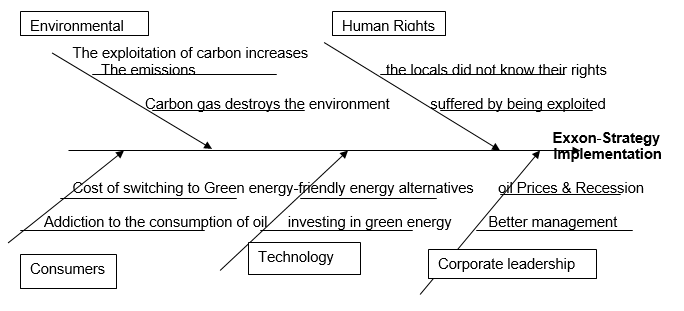
There are a lot of cash challenges that face Exxon Mobil. Basically, in the past, western firms dominated the oil industry controlling about 70 percent of the world’s possible oil reserves. The oil-producing nations and national oil firms owned the rest. Currently, the situation is reversed where the oil-producing nations own about 80 percent of the oil reserves. This has left Exxon with no place to invest its resources. The western nations are turning into very risky exploitation behavior like mining underwater reserves.
Due to the dominance of oil-producing nations in the market, the price is affected dangerously. The supply is manipulated to create scarcity. This and the fact that the west is dependent on oil make prices to be very high. Oil prices are always on the increase, for instance, in 2004, the oil price was about $ 35 per barrel but currently, it has increased by 50%. According to studies by Exxon Mobil projected that the price would be $2.00 per gallon but it’s over that at $2.50 per gallon. This is one reason for concern.
The1973 and 1979 fuel crises preceded the US recession and it’s evident that following the 1979 fuel crisis, unemployment in the US was highest at about 10.8% rate in 1982. And the 1973 oil crisis led to a 9% unemployment rate.
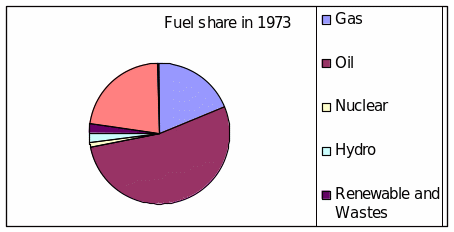
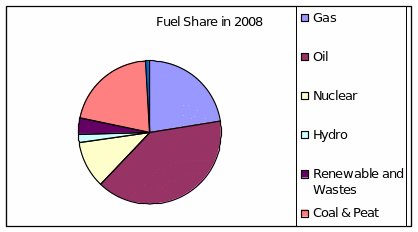
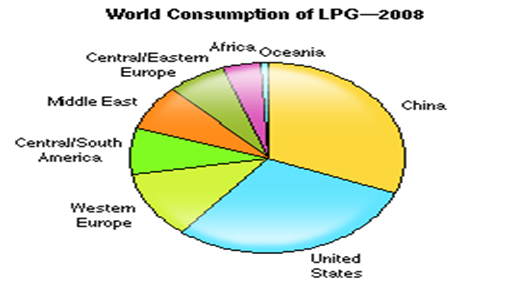
Solve
The oil-producing nations have a very big problem that will take a lot of time to get viable solutions. Concerning the pollution and the climatic impact that the oil industry has had on the planet, many anti-global warming is calling for investment in what they call ethical energy (Collingsworth 183). This is where energy sources can be produced from biofuel raw materials including sources like sugar cane as in Argentina or rubber.
Investing in bio-fuel rather than exploiting the petroleum and natural gases that are very rich in hydrocarbons could be a better alternative. This means even the technology of automobiles will have to change considering that the solution to environmental degradation is a collective responsibility (O’Riordan 239). The production of oil plants, sugar cane, and biogas for alternative energy sources may not be a very good business idea for Exxon.
Nonetheless, research and engineering departments are doing a great job in studying some of the ways that carbon emission will be reduced by creating products with less carbon. This is a new technology that is becoming very popular and is commonly referred to as low carbon technology. It’s expected to be one way of using energy efficiently in an effort by oil firms to protect the environment from degradation. From such technology, very little greenhouse gas will be emitted into the atmosphere.
Dealing with dangerous accidents like oil spills should fine a better management process in place (Spies et al 5). The company has over the past few years invested in training on incident management. Basically this is expected to offer a better practical approach that would be very efficient in handling accidents of spills or any other kind. The technologies will be tested and confirmed as workable (Spies et al 8). The management of the incident would begin by mitigating the negative effects of the problem then assessing the possible causes of the problem (Spies et al 9). There are several ways that information about the incidence can be collected including a casual chart.
Build
The workability and feasibility of some solutions are very hard to achieve. Many of the developing nations will not be able to afford the technology to use bio-fuel. Exxon on the other have will have to make a very great investment in the production of the bio-fuel or other alternatives that are considered ethical and environmentally friendly.
Benefits of Green Energy and Private Costs
The most important part is the raw material in the production of green energy fuel. The cost varies about the price of the feedstock and the amount used. Sugar cane is available in Argentina and cotton is used in Greece. These are estimates for one country; Greece
Figure 6 cost of producing bio-diesel from Sunflower.
Benefits and Environmental Cost: Emission analysis.
Figure 6.0 Cost-Benefit Analyses.
Its clear that diesel consumption is characterized by the increase of all types of emissions
This is because the technology is relatively new and it is very costly (O’Riordan 242). The developed countries may have the capital to invest but lack the land to grow the raw material like sugar cane or oil plants. Exxon will in such a case need more land for its raw materials. Consider the CBA below.
The green technology implementation is very tricky and it calls for cooperation between governments though some may be exploitative. For instance, the sugar cane plantations in Argentina were meant to produce ethanol, the project was backed by the United States who wanted to use it for the production of bio-fuel hence clearing large pieces of land and reducing land for food crop production (Alsop 23).
The volumes produced by the project were meant for Argentina’s domestic use and led to increased prices of sugar and practically led to the cultivation of one crop (sugarcane) seen by the thousands of hectares covered by sugar cane fields. This could be a serious tragedy of crop letdown waiting to take place (O’Riordan 242). The result of the investment in bio fuel could be worse if the bio fuel campaign to substitute petroleum oil with bio fuel is enacted. Most countries consider energy conservation as a fundamental part of government projects that the world uses to decrease their carbon release track record.
The use of alternative energy which is ethical and environmentally friendly became a concern because of global warming effects and depletion of sources. The accompanying price increase also pushes for the need for alternatives with high efficiency especially in the automotive industry (Alsop 23). The ethical and environmental friendly has created more room for the technology industry to develop hybrid vehicles and other machinery to use biofuel and electric automotive to use electricity. Other power sources include flywheels, fuel cells, and ultra-capacitors (Alsop 23). Biomass and hydrogen being low carbon emitters are not workable alternatives to fossil fuel. Nuclear power and carbon capture and storage also present low carbon alternative though not the best solution
Achieve
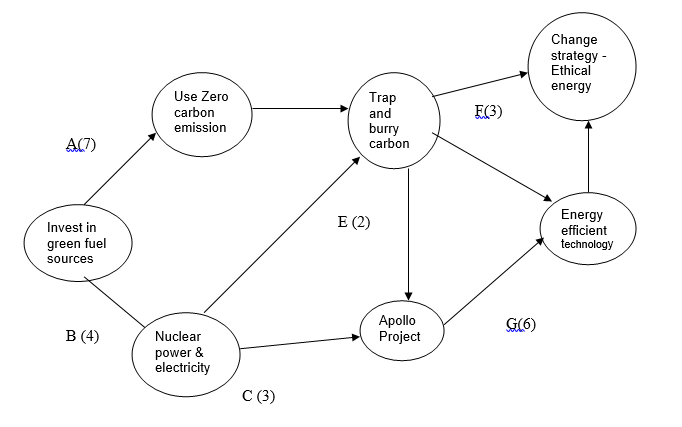
For oil-producing firms to affect some form of energy production that is less pollutant is a tricky undertaking. This is because since there are so many campaigns to reduce the use of carbon energy sources as fuel. This is what keeps the firm in operation (Breed 107). Reducing production is like failing. This has been a very contentious issue as far as ethics are concerned. If the firm stops producing petroleum and natural gas, it runs out of operation, however, continued production knowing that the impact was destructive to the environment is morally wrong (Collingsworth 184).
Nonetheless, Exxon can make an effort to mitigate emissions. Investing in low-carbon technology is a viable alternative. There are technologies that Exxon Mobil can invest in so that the customers also help in mitigating emissions. This would include technologies like carbon capture and trapping techniques. The efficient climate strategies of producing electricity with very low emission levels are relatively lower than those in the transport sector (Alsop 25).
Research has shown that it is possible to trap and bury carbon before its release into the environment thus cutting down about 90% carbon. If Exxon can invest in this technology and sell it to its customers, then the green technology policy will be a success and this company will survive in the market.
Another viable investment is bio-fuel. This uses sources other than hydrocarbon chemicals to produce energy. Though this has been very tried in some places, its full feasibility is not yet confirmed (Alsop 25). Some scholars argue that the amount of carbon from such technologies is the same as that from hydrocarbons. The technology is also costly and Exxon may not be comfortable investing in such technology. Bearing in mind that it will take time for an adequate market to be available to use the bio-fuel, this venture may not be profitable for Exxon now (Breed 107).
Nuclear energy is gaining popularity all over the world and can be a viable alternative to carbon-rich compounds (Breed 107). However, there has been a problem of misuse of energy with some countries venturing in the line of weaponry. Nuclear weapons are hence feared when venturing into this type of technology. Conservation of the environment has a serious impact on the whole world if left unmanaged and most of those likely to suffer are innocent populations who have no idea of the global warming issues. Mitigating carbon emissions reduces the carbon dioxide burden that has been linked to global warming (O’Riordan 244).
Works Cited
Alsop, Ronald. Corporate Reputation: Anything But Superficial – The Deep but Fragile Nature of Corporate Reputation. Journal of Business Strategy, 25.6(2004):21-29.
Assadourian, Erik. State of Corporate Responsibility and the Environment. Geo. Int’l Envtl. L, 18(2006):571.
Breed, Michael. Regulating Our 21st-Century Ambassadors: A New Approach to Corporate Liability for Human Rights Violations Abroad. J. Int’l L, 42(2002):105.
Collingsworth, Terry. Key Human Rights Challenge: Developing Enforcement Mechanisms. Harv. Hum. Rts. J, 183.15(2002).
Fridtjof Nansen Institute. Petro-States – Predatory or Developmental? FNI-Report 11/2000, Lysaker, Norway: The Fridtjof Nansen Institute, 2000. Print.
O’Riordan, Tim. Environmental Science, Sustainability and Politics, “Transactions of the Institute Of British Geographers”, New Series, 29.2(2004): 234-247.
Skjærseth, Birger and Skodvin, Titus. ‘Climate Change and the Oil Industry: Common Problems, Different Strategies’, Global Environmental Politics, 1.4(2004): 43-64.
Skjærseth, Birger. Tiger or Turtle on Social Responsibility. FNI Report, 2003.
Spies, Bernard. Rice, Dickens, Wolfe, Arnold and Wright, Armstrong. The Effects Of The Exxon Valdez Oil Spill On The Alaskan Coastal Environment, Proceedings Of The Exxon Valdez Oil Spill Symposium. American Fisheries Society Symposium, 18(2001): 1-16.
Taylor, Kerrie. Thicker Than Blood: Holding Exxon Mobil Liable For Human Rights Violations Committed Abroad. Syracuse J. Int’l L. & Com, 31.273(2004).
